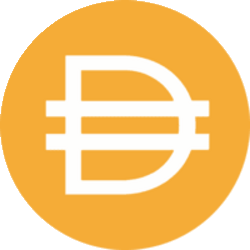Securing Your Cryptocurrency: Where to Safely Store Your Assets?
Contents
- Hardware wallets are the most secure method for storing cryptocurrencies
- Software wallets offer a more affordable but slightly less secure alternative
- Storing cryptocurrencies on exchanges carries the highest risk
Discover the safest methods for storing your cryptocurrencies, from hardware wallets to software wallets, and the risks of keeping them on exchanges.
Securing Your Cryptocurrencies: A Comprehensive Guide
With the recent collapses of various exchanges (FTX, BlockFI, Celsius) and alleged illicit activities on other platforms, the question of how to securely store cryptocurrencies is on everyone’s mind.
Hardware Wallets: The Gold Standard of Crypto Storage
Hardware wallets are the most effective way to secure your cryptocurrencies. The most well-known ones are Ledger, Trezor, and ColdCard. While ColdCard is exclusively for Bitcoin, Ledger and Trezor can be used for altcoins as well. The key to using your own wallet is to securely store the 12 or 24-word seed (key) that allows you to access your coins. If you lose your seed, you lose your coins. Remember, the most secure method also comes with responsibilities.
Software Wallets: A More Affordable Option
Next in line are self-custody wallets, but this time they are software-based. You can download apps like MetaMask, Trust Wallet, Coinbase Wallet, and Exodus onto your phone and store your coins without having to trust any central authority. If you don’t want to spend over $100 on a hardware wallet, these wallets are a good alternative. However, if the total value of your coins exceeds your monthly income, I recommend using a hardware wallet.
Crypto Exchanges: A Risky Business
From a security perspective, crypto exchanges are the least safe. I personally do not recommend using exchanges to store your coins. While we need exchanges to buy and trade our coins, we don’t need them to store our coins in the long term. It’s easy to keep your coins on the exchange after buying them, but moving them to your own wallet protects you from the risks of centralized structures. If you still prefer to store your coins on an exchange, the best way to reduce your risk is to spread your coins across various exchanges. You wouldn’t want to lose all your assets if an exchange like FTX or Celsius goes bankrupt.
Stablecoins: A Matter of Diversity
When it comes to safely storing stablecoins, the issue comes down to diversity. Stablecoin companies are still companies, and they could disappear one day like any other company or exchange. Trusting a company carries risks, but diversification can significantly reduce these risks. Therefore, the best investment decision is to store your stablecoins in different stablecoins rather than just one. The leading stablecoins are USDT, USDC, DAI, TUSD.
Conclusion
The best way to securely store your cryptocurrencies is to use hardware wallets. However, software wallets can also be an option. If you still want to store them in a centralized location, never keep all your assets on a single platform or stablecoin. Diversification is the most effective way to reduce potential risks.
Comments
Other Articles
Bitcoin Price Analysis: Will the Uptrend Continue?
2/8/2026
Ethereum 2.0 Update: How Will It Affect the Crypto Market?
2/7/2026
The Coming of Altcoin Season: Which Coins Will Stand Out?
2/6/2026
DeFi Protocols and Yield Farming Strategies
2/5/2026
